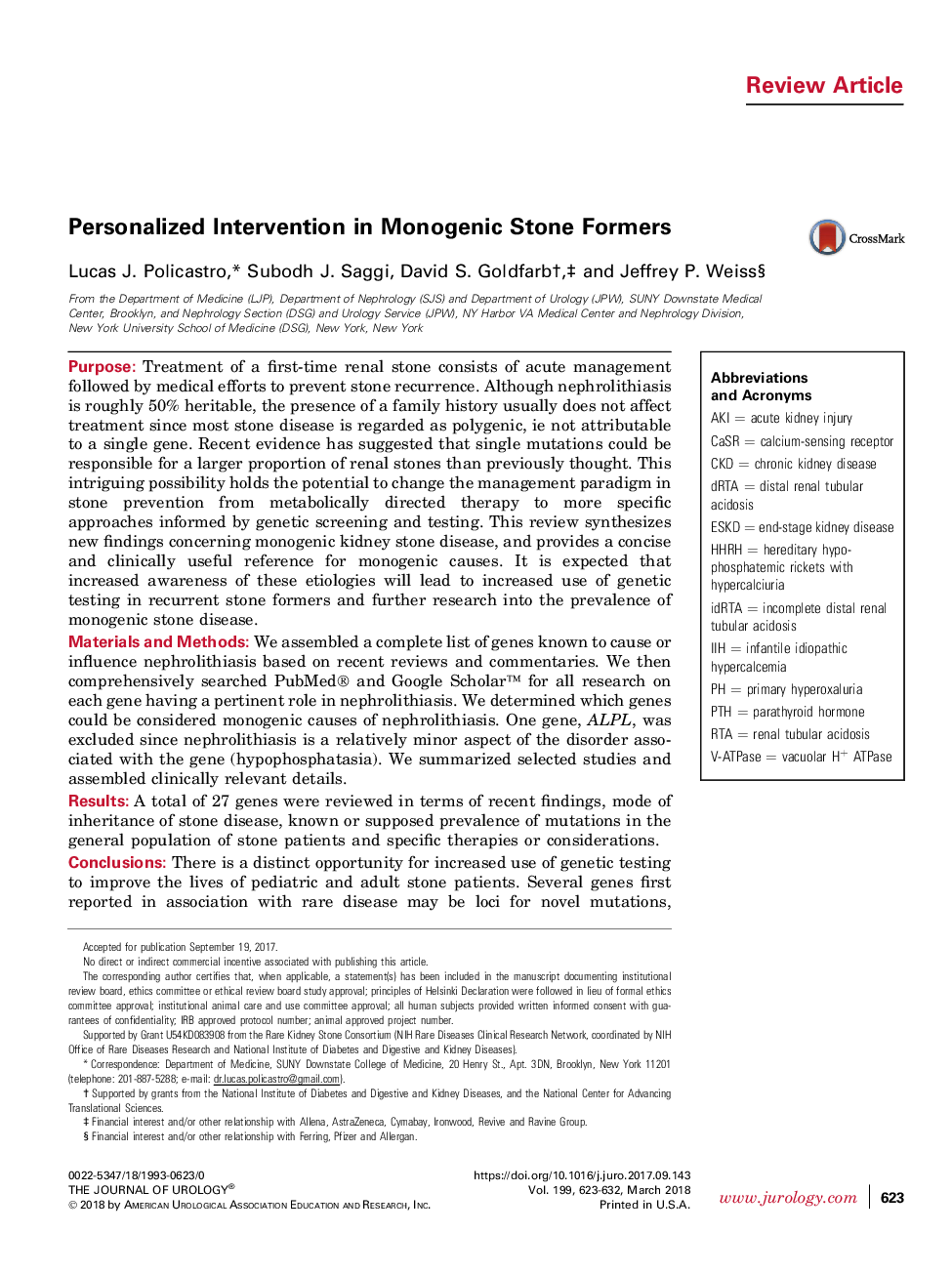| Article ID | Journal | Published Year | Pages | File Type |
|---|---|---|---|---|
| 8771613 | The Journal of Urology | 2018 | 10 Pages |
Abstract
There is a distinct opportunity for increased use of genetic testing to improve the lives of pediatric and adult stone patients. Several genes first reported in association with rare disease may be loci for novel mutations, heterozygous disease and forme frustes as causes of stones in the broader population. Cases of idiopathic nephrolithiasis should be considered as potentially having a monogenic basis.
Keywords
AKIHereditary hypophosphatemic rickets with hypercalciuriadRTAESKDHHRHRtapTHCaSRIIHV-ATPaseacute kidney injuryRenal tubular acidosischronic kidney diseaseEnd-stage kidney diseaseDistal renal tubular acidosiskidney calculiCKDNephrolithiasisparathyroid hormonePrimary hyperoxaluriaHypercalciuriaPrecision medicineGeneticsCalcium-sensing receptor
Related Topics
Health Sciences
Medicine and Dentistry
Nephrology
Authors
Lucas J. Policastro, Subodh J. Saggi, David S. Goldfarb, Jeffrey P. Weiss,
